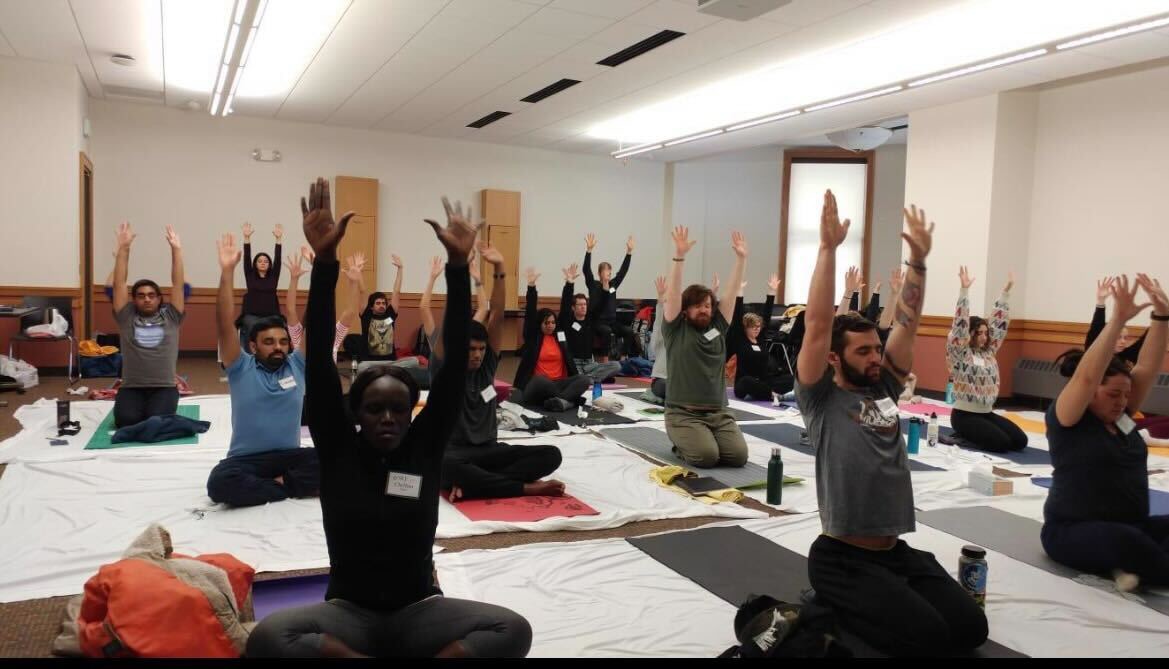Image: SKY Campus Happiness club at UMN practice “bellows breath” to increase metabolism and energize the body
Those with mental health diagnoses can find comfort in practicing mindfulness, but it can’t meet all their needs. Some need to proceed with caution.
By Marlee Louden
Mindfulness–which author Jon Kabat-Zinn defines as “awareness that arises through paying attention, on purpose, in the present moment, non-judgmentally”–has become one way people can reduce stress, anxiety and depression in our overworked American culture.
But practicing mindfulness is not a cure for a mental health diagnosis, said Alex Haley, an assistant professor of spirituality and healing and the mindfulness program lead at the University of Minnesota’s Earl E. Bakken Center for Spirituality & Healing.
“It’s one approach among many,” Haley said. “Its value is that it’s an option and can teach some really important skills around self-regulation, self-awareness, attention and emotional regulation. Those are really great things, but sometimes aren’t enough.”
For some mental health diagnoses, mindfulness practices can even be risky and can trigger symptoms that need to be monitored by specially trained practitioners, Haley added.
Haley is trained in trauma-informed mindfulness, which is founded on the idea that there is always choice when it comes to practicing mindfulness. Anyone who wants to pursue mindfulness work should carefully research who is leading the practice.
Haley also said many instructors are trained specifically on mindfulness practices that benefit certain mental health diagnoses.
Haley helped create a safety protocol for mindfulness practices that doctors can give to patients. Among the recommended guidelines are for doctors to ask their patients if they have been diagnosed with bipolar disorder, schizophrenia, psychosis, substance abuse disorder, suicidal ideation or major depressive disorder. If so, patients are discouraged to pursue mindfulness without consulting a mental health professional first, or to seek mindfulness classes offered by a mental health professional.
Condition-specific mindfulness courses that align properly with their diagnosis are often recommended, according to the Bakken Center.
The SKY Campus Happiness Club at the University of Minnesota practices intentional breathing and meditation as mindfulnesses exercises. Jaden Evenson, president of the club, said intentional breathing exercises can be helpful for mental health conditions to relax the body and make diagnoses more tolerable.
“I believe it is a great supplement to everyone’s lives,” Evenson said.
